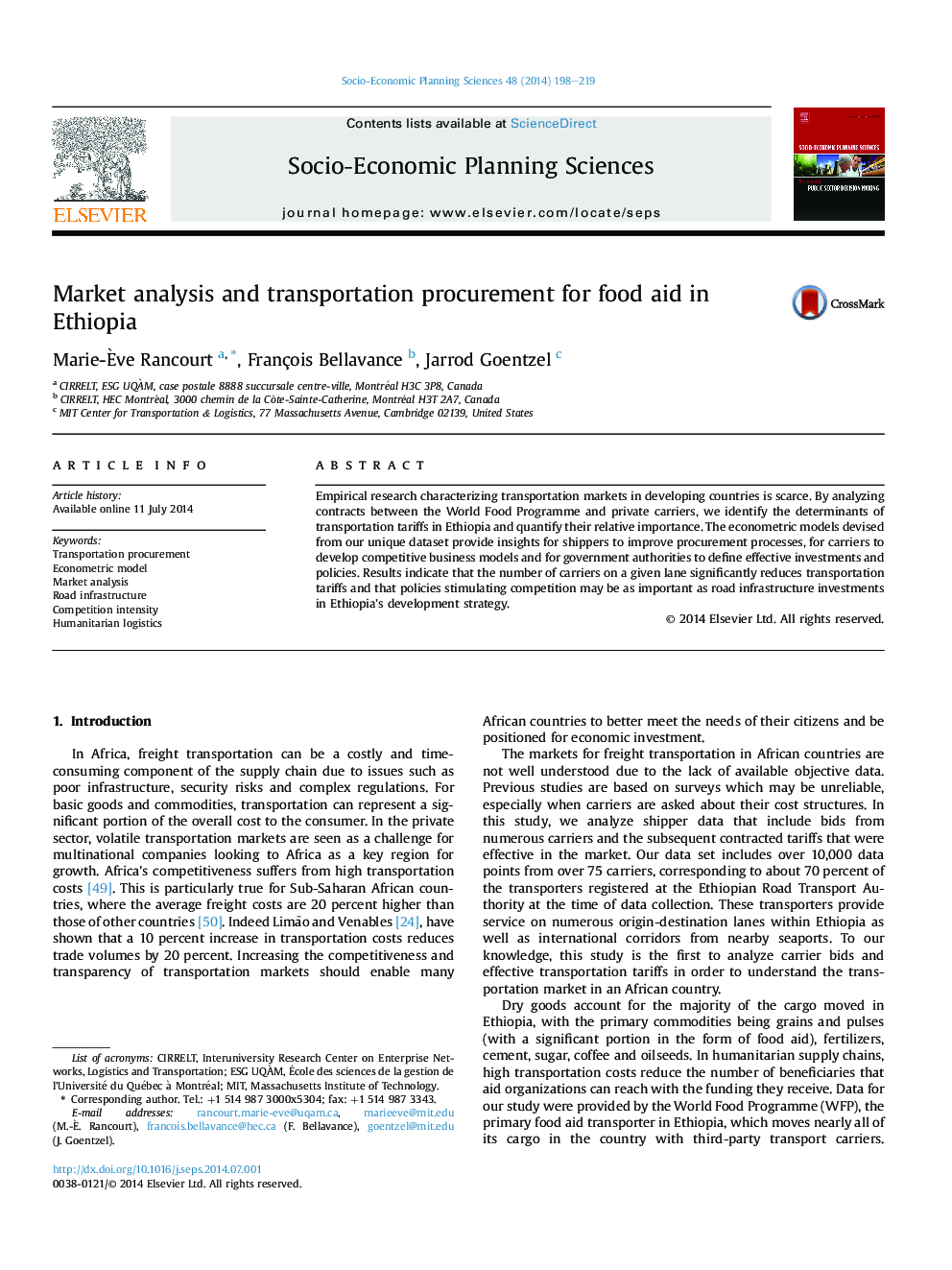| Article ID | Journal | Published Year | Pages | File Type |
|---|---|---|---|---|
| 986785 | Socio-Economic Planning Sciences | 2014 | 22 Pages |
•Regression models are developed to explain the Ethiopian transportation market.•Dominance analyses show that the major tariff drivers are road conditions and competition.•Increasing competition reduce shipping costs in a larger proportion than better road conditions.•Improving market efficiency should be an integral component of Ethiopia's development strategies.
Empirical research characterizing transportation markets in developing countries is scarce. By analyzing contracts between the World Food Programme and private carriers, we identify the determinants of transportation tariffs in Ethiopia and quantify their relative importance. The econometric models devised from our unique dataset provide insights for shippers to improve procurement processes, for carriers to develop competitive business models and for government authorities to define effective investments and policies. Results indicate that the number of carriers on a given lane significantly reduces transportation tariffs and that policies stimulating competition may be as important as road infrastructure investments in Ethiopia's development strategy.
